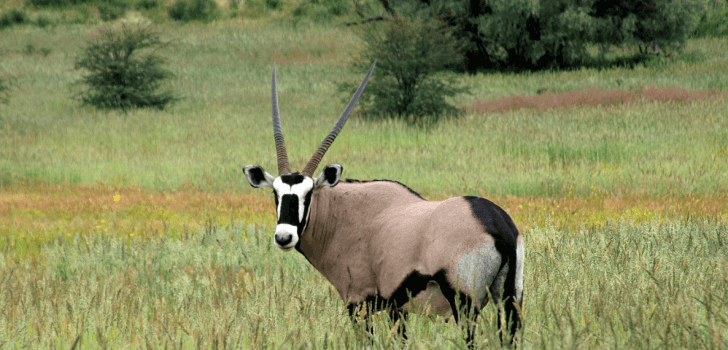In a very quiet, behind closed door deal, the Botswana government has apparently sold the rights to frack for shale gas in the Kgalagadi transfrontier park, one of Africa’s largest protected conservation areas.
The park, which borders South Africa, comprises of 36,000 sq km of wilderness, is home to the rare black-maned Kalahari lions, pygmy falcons, and gemsbok desert antelope. Conservationists and top park officials were not informed of the fracking rights sale and are now worried about the impact of drilling on the wildlife.
Prospecting licences for more than half of the park were sold to UK-listed company Nodding Donkey in September 2014, although the sale has not been reported until now. The company has now changed its name to Karoo Energy.
Park officials say no drilling has yet taken place, but they have found oil sediment on the ground near a popular campsite in the park, where there is an “overwhelming smell of tar”. They also found a drill stem protruding from an apparently recently drilled hole elsewhere in the park.
Scientist Gus Mills who spent 18 years in Kgalagadi studying cheetahs and hyenas says, “The development that is going to have to go on there, with infrastructure that has to be moved in, seems to be yet another nail in the coffin of wild areas in the world.”
Dr. Peter Apps, of the Botswana Predator Conservation Trust, says that drilling could impact water sources throughout the park.
Olmo von Meijenfeldt, director of the South African organisation Democracy Works, is worried how the fracking will impact rural communities in and around the park.
“Governments should be reluctant if not downright hostile towards extracting natural resources for a short-term benefit that will contribute to a deterioration of habitat and our long-term capacity for sustainable development and poverty alleviation.”
The tourism manager for the South African side of the park, Ben van Eerden, and Leabaneng Bontshetse, the Botswana Kgalagadi park manager, are not aware of licences being issued. “We haven’t seen any licences being issued, we haven’t been told of anything and there is no company drilling in the park,” says Bontshetse. “I am surprised and I am shocked.”
Neither Karoo Energy nor the Botswana government have replied to requests for comment.
